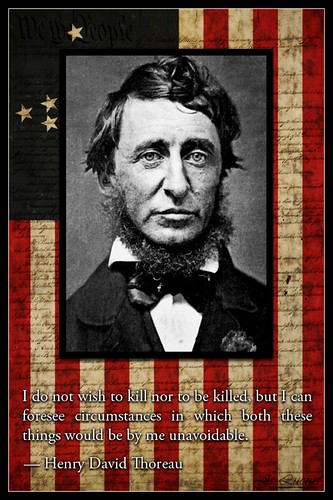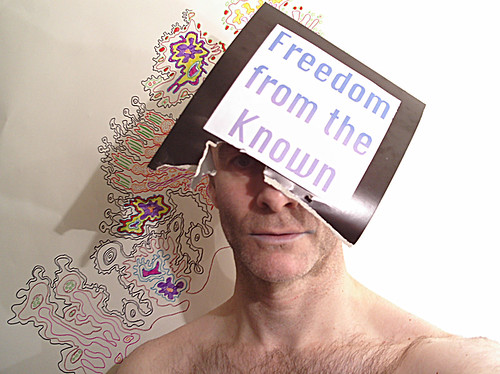Church of Scientology Melbourne—the First Ideal Scientology Church Beneath the Southern Cross
Church of Scientology Melbourne—the First Ideal Scientology Church Beneath the Southern Cross
Melbourne, Australia (Vocus/PRWEB) January 31, 2011
Thousands of Scientologists, dignitaries and guests from across the nation celebrated a milestone—the opening of the first Ideal Scientology Church in Australia.
Auntie Joy Murphy Wandin, senior elder of the Wurundjeri people, opened the dedication with the traditional “Welcome to Country” ceremony, welcoming Scientologists to the lands of her ancestors.
Scientologist, Melbourne native and award-winning singer and songwriter Kate Ceberano performed a moving rendition of her original composition “This Song is You,” written in honour of the occasion and the heritage of the city and all that Australia holds dear.
In tribute to the significance of the occasion Mr. David Miscavige, Chairman of the Board Religious Technology Center and ecclesiastical leader of the Scientology religion, travelled to Melbourne from the United States to officiate at the dedication. He acknowledged the long parade of accomplishments by Australian Scientologists that culminated in the new Church.
“It is my honour to join you this evening and commemorate a moment that will live on in history for a long time to come. Not that you haven’t loomed large in history before, not that you haven’t triumphed over great adversity in years gone by, not that you didn’t stand firm for the dignity of Man, and not that you didn’t indeed uphold the God-given rights of all religions all over this world.
“But having triumphed today in the name of our religion, you just flipped this planet all the way around so that Melbourne now sits on top of the globe. And that’s what it means to build an Ideal Org beneath the Southern Cross.”
Mr. Miscavige also spoke of Melbourne’s hallowed place in Scientology history, noting that Founder L. Ron Hubbard himself came to Melbourne in November 1959 to deliver a series of lectures to its founding Scientology community. As Mr. Miscavige explained: “Those November 1959 lectures marked a turn in the path and a rise in the road, from which the whole panorama of human potential came into focus.”
“Whence, the highest levels of Scientology and the whole vista of spiritual enlightenment and freedom.”
“So you wonder where you stand in the history and legacy of LRH and our religion as a whole? None of it would exist were it not for what began right here—and that’s both the heritage and legacy, which is indelibly woven through the brickwork of your new Ideal Org of Melbourne.”
Acknowledging the Church for its many contributions to the community were Melbourne Lord Mayor the Honourable Robert Doyle, Moonee Valley City Councillor Paul Giuliano, Shadow Minister for Tourism and Major Events, the Honourable Justin Madden, Sociologist Professor Gary Bouma and former Indigenous Person of the Year Uncle Bob Randall.
Praising the Church’s active role in community life, Lord Mayor Robert Doyle told those assembled: “Today marks an historic occasion for Scientology. The building you see before you is the first of its type in Australasia, and the re-birth of an historic Melbourne building. This is a unique space. I hope benefits flow in partnerships, community connection and goodwill. I invite you to celebrate this opening in the heart of our exciting, welcoming and diverse Melbourne.”
Moonee Valley City Councillor Paul Giuliano welcomed the congregation to his metropolitan Melbourne community where the Church is located: “I know that I speak for many when I say thank you so very much for restoring this beloved landmark to its former glory. I cannot think of a better custodian than the Church of Scientology.”
The occasion was a reunion for teacher, football icon and Victoria Shadow Minister Justin Madden, who attended the Catholic University within the walls of what is now the new Scientology Church. He commended the Church for its historic preservation as well as its literacy and drug education initiatives: “Unselfishly, you work to provide ways and means to uplift our society. You have set the standard for the community with your restoration of this building and with your social programs—an example I will point to for others to follow. Your new Church is as Melbourne as Melbourne gets.”
Human rights activist Bob Randall, whose award-winning documentary, Kanyini, exposed the plight of the Aboriginal “stolen generations,” thanked the Church and its Scientology Volunteer Ministers program for its commitment to the indigenous people of Australia: “Scientology Volunteer Ministers have come to my country and given us hope that we can deal with these problems and we will make a difference in the near future. The Volunteer Ministers I’ve met have become my friends. The fellowship between us has been fun and I look forward to continuing that relationship to continue on to the present into the future. On behalf of me and my people, I thank you.”
Melbourne has long held importance for the Scientology religion. Within months of L. Ron Hubbard authoring Dianetics: The Modern Science of Mental Health in 1950, the first Dianetics group in Australia was formed here and in 1955 the first Scientology Church in Australia opened in this city.
Australia similarly long held a place near to L. Ron Hubbard’s heart, beginning with his service “Down Under” as a United States Naval Officer through the first days of World War II. Principally stationed in Brisbane, but also operating from Melbourne, then Lieutenant Hubbard was charged with organising relief efforts for Allied troops trapped in the Philippines. He also proudly served with Australian gunnery units for the defence of Brisbane.
As Scientology Founder, L. Ron Hubbard returned to Australia in 1959 to deliver two historic lecture series: The Melbourne Congress and the 1st Melbourne Advanced Clinical Course. Remembered today for his delineation of the highest spans of the Scientology Bridge, Mr. Hubbard’s Australian lectures will forever hold a cherished place in the religion.
Today, the Melbourne Scientology Church is the first Ideal Church of Scientology Organisation in Australia, realising Mr. Hubbard’s vision for what Scientology can provide for its congregation and community.
The Church now stands on the site of the 19th century estate of Robert McCracken, leading businessman and founder of the legendary Essendon Bombers football team. After the turn of the 20th century, this building became the home of Mercy Teachers’ College, later part of the Catholic University. The original name of the estate is “Ailsa” for Ailsa Craig, an island off the west coast of Scotland from where the McCracken family sailed more than 150 years ago.
Melbourne’s Public Information Centre offers more than 450 informational films illustrating Scientology beliefs, the life and legacy of Founder L. Ron Hubbard, and the full array of Church-sponsored social betterment and community outreach programs.
The Chapel seats hundreds, the library contains all Church Scripture. Course rooms and counselling rooms accommodate Scientologists from throughout Victoria. Seminar rooms, film rooms and Life Improvement Course Rooms make effective solutions to the most pressing challenges people face today easily available to Scientologists and non-Scientologists alike. Workspaces for volunteers stand open and ready for use by parishioners and the community.
Under the guidance of Mr. David Miscavige, Chairman of the Board Religious Technology Center and ecclesiastical leader of the Scientology religion, 23 Ideal Churches have been dedicated and opened since 2003, including those in world cultural capitals—The National Church of South Africa in Johannesburg; the National Church of Scientology of Spain in Madrid; the Church of Scientology of New York, just off Times Square; the Church of Scientology of London, located in the epicentre of the city; the Church of Scientology of Italy in Rome; the Church of Scientology of Washington, D.C., just blocks from the White House on “Church Row”; the National Church of Scientology Mexico, in Mexico City; and the Church of Scientology of Berlin, near the Brandenburg Gate. Another 60 Ideal Churches are in design, planning or construction phases.
The Scientology religion was founded by author and philosopher L. Ron Hubbard. The first Church of Scientology was formed in the United States in 1954 and has today expanded to more than 9,000 Churches, Missions and affiliated groups, with millions of members in 165 countries.
###
Attachments
 ©Copyright 1997-
©Copyright 1997-
, Vocus PRW Holdings, LLC.
Vocus, PRWeb, and Publicity Wire are trademarks or registered trademarks of Vocus, Inc. or Vocus PRW Holdings, LLC.




